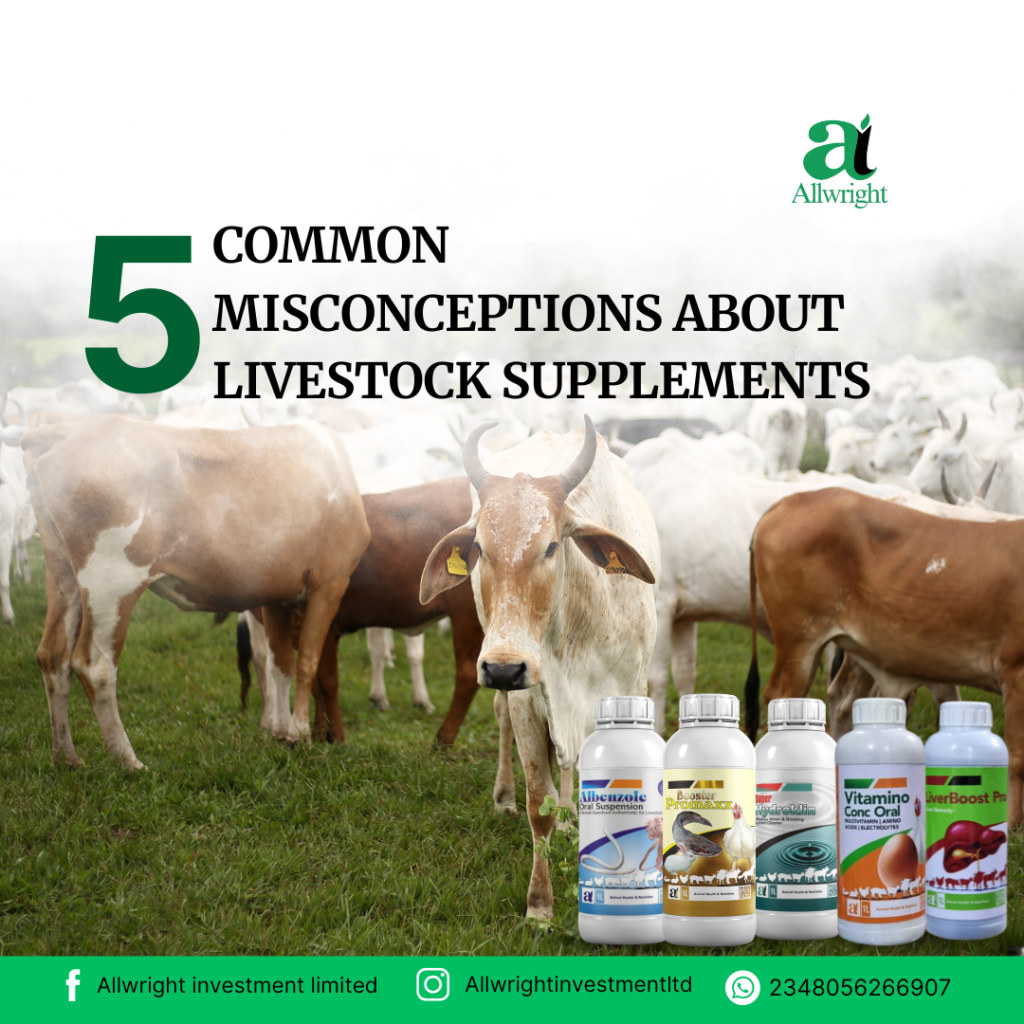
The world of animal nutrition is full of myths and misunderstandings—and believing them can cost you money, productivity, and even animal health. Let’s bust the top 5 misconceptions about livestock supplements so you can make smarter choices for your herd.
Myth #1: “All Mineral Supplements Are the Same”
The Truth:
- Not all minerals are equally bioavailable. For example:
- Oxides (cheap, poorly absorbed) vs. chelated minerals (higher absorption)
- Inorganic vs. organic selenium (selenomethionine is far more effective than sodium selenite)
What to Do:
✔ Check the ingredient form (e.g., “zinc methionine” beats “zinc oxide”)
✔ Ask for research-backed products with proven absorption rates
Myth #2: “More Supplements = Better Results”
The Truth:
- Over-supplementation can be dangerous! Examples:
- Excess selenium → Toxicity (hair loss, hoof problems)
- Too much copper → Liver damage (especially in sheep)
What to Do:
✔ Test forage/soil first to identify actual deficiencies
✔ Follow label dosages—more isn’t always better
Myth #3: “If Animals Don’t Eat Supplements, They Don’t Need Them”
The Truth:
- Livestock can’t always self-regulate. Reasons they might avoid supplements:
- Poor palatability (low-quality flavors or textures)
- Hidden deficiencies (e.g., phosphorus deficiency reduces appetite)
What to Do:
✔ Use Allwright supplements to encourage intake
✔ Offer multiple formats (blocks, loose minerals, liquid drenches)
Myth #4: “Natural Remedies Are Always Safer Than Pharmaceuticals”
The Truth:
- “Natural” doesn’t mean risk-free. Examples:
- Certain herbs (e.g., comfrey) can cause liver damage
- Essential oils may disrupt rumen microbes if overdosed
What to Do:
✔ Use science-backed natural products (e.g., yeast-based probiotics)
✔ Avoid unregulated “miracle cures” with no dosage guidelines
Myth #5: “Young, Healthy Animals Don’t Need Supplements”
The Truth:
- Early-life nutrition impacts lifetime productivity. For example:
- Calves with selenium/vitamin E deficits develop white muscle disease
- Lambs lacking copper grow slower and have weaker wool
What to Do:
✔ Start preventive supplementation early (even in utero via dam’s diet)
✔ Focus on colostrum quality + creep feeds for young stock
Key Takeaways
✅ Quality > quantity—choose bioavailable forms
✅ Test, don’t guess—avoid blind supplementation
✅ Palatability matters—animals won’t eat what they dislike
✅ Natural ≠ safe—dose carefully
✅ Start young—early deficiencies cause long-term issues
At Allwright Investment Limited, we formulate precision supplements based on real science, not myths. Shop our research-backed products today!

Leave a comment
You must be logged in to post a comment.